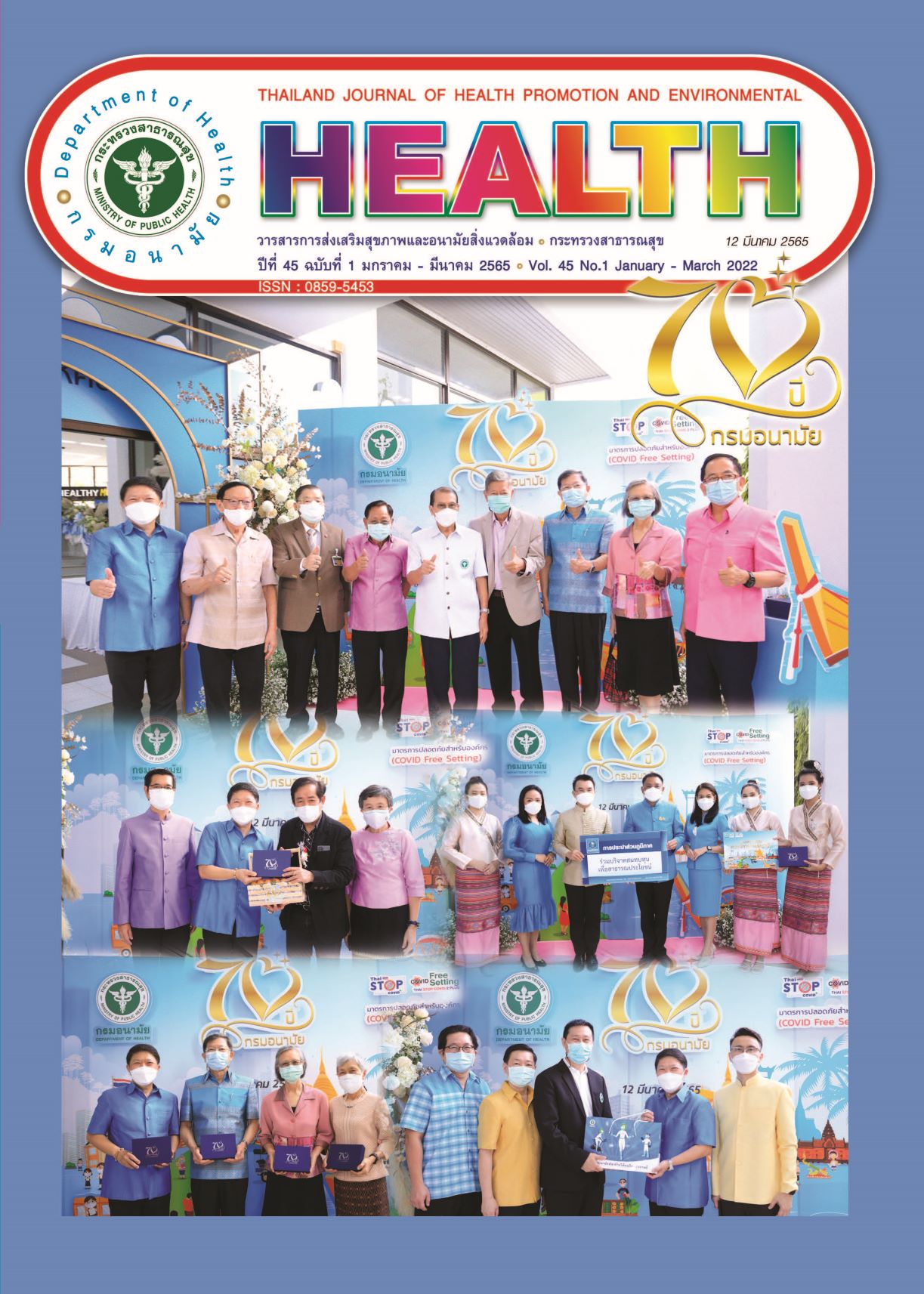Model Development for initially uncertified Hospitals of YFHS Criteria Standard version 2020 in Health Region 5
Keywords:
development pattern, Youth-Friendly Health Services (YFHS), Health Region 5Abstract
This is a mixed methods research aimed to: 1) study the situations, opinions and recognitions of 2020 Youth-Friendly Health Services (YFHS) Program operation; 2) develop the operation pattern of hospitals that have not been accredited with YFHS Program; and 3) evaluate the result of health service management under YFHS Program. The populace are 17 hospitals that have not been accredited with YFHS Program. The research is divided into 3 phrases: Phrase 1 is the survey research to study the situations, opinions and recognitions of YFHS Program operation; Phrase 2 is the propelling of hospital development under YFHS Program through participatory action research by selecting 3 hospitals from Phrase 1 to participate in the program according to the screening criteria and manage to propel the development under the YFHS Program; and Phrase 3 is the follow-up period by supervision, hospital accreditation assessment and satisfactory evaluation. The data analysis is made via frequency distribution, percentage, average, standard deviation and content analysis. According to the study results, the situation data showed that out of 44 personnel were mostly female, 79 percent having experiences with youth and adolescence for over 10 years and 31.8 percent having ‘little’ level ( x ̅= 2.49, SD 0.33) of recognition over the Component 2 or Service System of YFHS Program operation. In the propelling stage, the operation plan was made via training, creating the understanding of adolescence care network, co-planning the service management and having the coaching team giving development advices under YFHS Program. In the follow-up stage, it is found that 2 hospitals passed the accreditation assessment criteria with the total score of 82.73 and 82.36 in ‘very good’ level (equivalent to the score of 80-89). The overall satisfactory evaluation of the service taker, the service provider towards the provided service and the personnel towards the development visit, counseling and coaching were in ‘much’ level: ( x ̅= 4.28, SD = 0.63), ( x ̅= 4.03, SD = 0.51) and ( x ̅= 4.18, SD = 0.36), respectively. The factors of success in service provisions included the clear-cut policies, the responsible personnel in service provisions and the cooperation of all networks. Apparently, the development of health services under YFHS Program should be initiated from the context of health service management in each hospital while all concerned sectors participating in planning and operating the service system development for work integration.
Downloads
Published
Issue
Section
License
Copyright (c) 2022 Thailand journal of Health Promotion and Environmental Health

This work is licensed under a Creative Commons Attribution-NonCommercial-NoDerivatives 4.0 International License.

